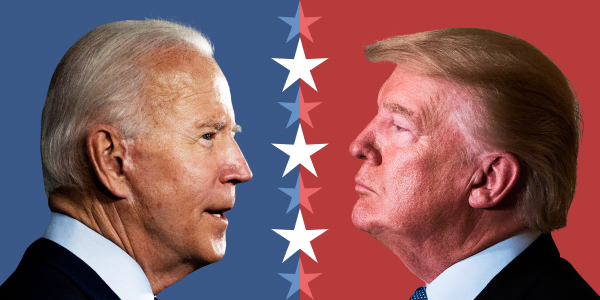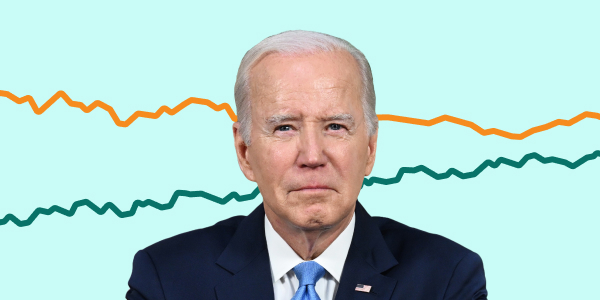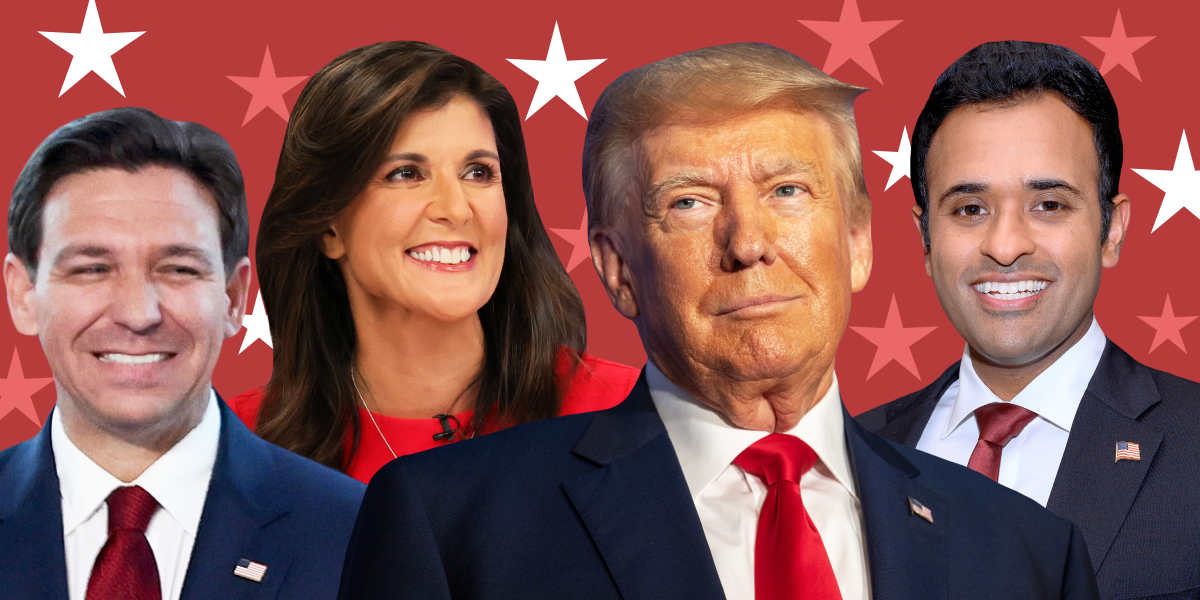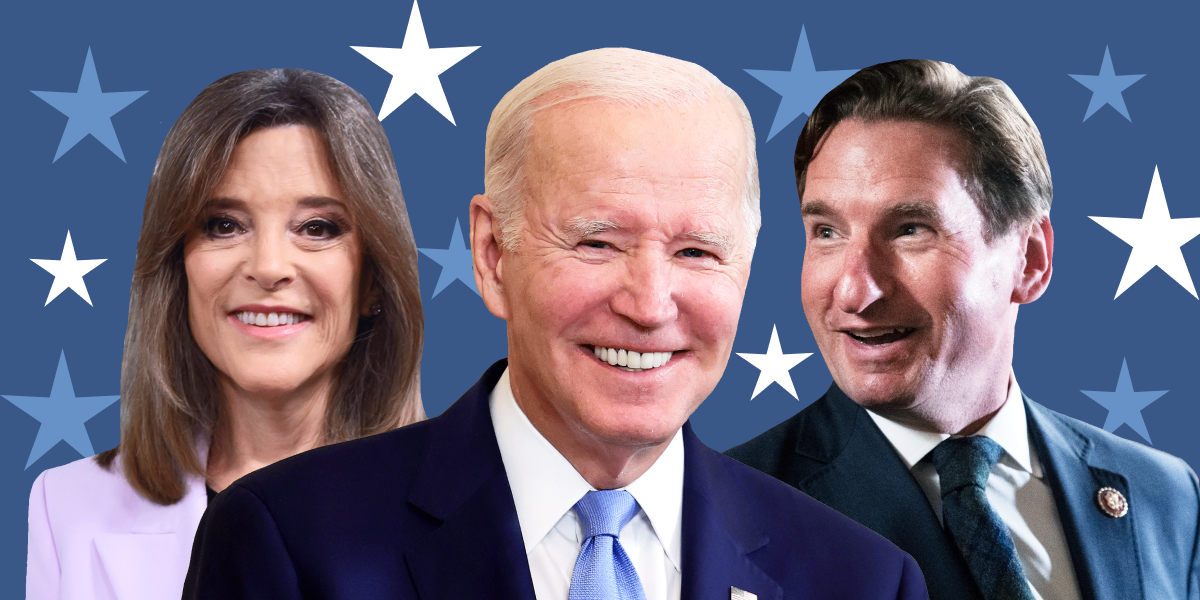Mormon voters set to play critical role in swing states
By Caroline Vakil, Julia Manchester - 10/16/24, 6:00 AM EDT

Mormon voters are increasingly seen as a crucial swing vote in the presidential election, with both Vice President Harris and former President Trump stepping up their outreach to the demographic in multiple battleground states.
The Harris and Trump teams have launched coalitions and deployed surrogates to engage with members of the community, formally known as the Church of Jesus Christ of Latter-day Saints, in Arizona and Nevada — home to more than 600,000 members combined, including children.
While Mormons have traditionally voted Republican, Trump’s character and his role in the Jan. 6 Capitol riot could serve as wedge issues to peel off votes from him in what’s already expected to be a tight election.
“I do think that there is kind of this dichotomy when it comes to President Trump, where the policies for many members of the church are more aligned with their values — not all members of the church — but many,” said Mark Hutchison, a former GOP Nevada lieutenant governor.
“And the personality traits and the attacks and the division is not in alignment with many members of the church and their values,” Hutchison continued. “And so your question is, well, how are they gonna square those two? And I think it's gonna come down to what's the most important issues for them personally in 2024.”
Harris’s outreach efforts include phone banking, events and door-knocking. Prominent surrogates have included John Giles, the Republican mayor of Mesa, Ariz., who’s supporting Harris; Andy Hafen, former mayor of Henderson, Nev.; and Daniel Stewart, who’s represented several GOP presidential campaigns.
Trump addressed Mormon voters directly on a “LDS 4 Trump” Zoom roundtable over the weekend and emphasized the impact the group could have on the election results in Arizona.
In 2016, Trump won Arizona by 3.5 percentage points but in 2020 narrowly lost it to President Biden by less than a percentage point. Biden also became the first Democrat to win Maricopa County, a critical battleground within the state.
“President Trump has consistently stood with believers by protecting religious institutions, appointing constitutionalist Justices, and defending Christian values nationally and abroad,” said Halee Dobbins, a communications director for the Arizona GOP, in a statement.
“He has made it a priority to protect religious communities, not fight against them.”
According to a poll released last year from the American Enterprise Institute’s Survey Center on American Life, 51 percent of Mormons said they had negative views of Trump. By comparison, 67 percent of evangelicals said they had a favorable view.
While the Church of Latter-day Saints has long sought to emphasize its political neutrality, it has also underscored the importance of political engagement. Leadership from the church notably addressed the subject last year, advising against simply voting for the same party down the ballot.
Strategists say there is some evidence to suggest that Trump’s support among the Mormon community could be softening in Arizona's critical population centers like Maricopa County.
“When you look at the softness in Trump’s numbers in those two areas of Arizona in the 2020 election vs. 2016, I think there is a strong sense that was driven, at least in part, by a lack of enthusiasm for him in the [Mormon] community,” said Gregg Keller, a veteran GOP strategist and former coalitions director for Sen. Mitt Romney’s (R-Utah) 2012 presidential campaign.
Some of Trump’s prominent surrogates this cycle have included Sen. Mike Lee (R-Utah); Reps. Celeste Maloy (R-Utah), Burgess Owens (R-Utah) and Andy Biggs (R-Ariz.); and Pinal County Sheriff Mark Lamb.
The challenge among members of the church seems to hinge on the debate over the personal versus policy. There are members that might align closer with Trump or Republican policies more broadly or see the issue of abortion, for example, as something that could turn them off to Harris. Notably, both Arizona and Nevada have abortion ballot measures coming before voters this fall.
“I have found for many years — and I've done a lot of work across the conservative spectrum and amongst both pro-choice and pro-life religious leaders — that we actually have common ground on this issue because what we wanna do is get more support to women and children,” said Rev. Jen Butler, national faith engagement director for the Harris campaign, noting Democrats’ policies like supporting the child tax credit and Affordable Care Act.
At the same time, other members of the church might see Trump’s character and his past statements calling to suspend the Constitution as problematic.
Trump’s rhetoric on immigration and the border could also pose an issue for him with Mormons, given the group’s strong ties to Latin America.
“They find his rhetoric on the immigration issue a little bit more troubling than other constituencies would,” Keller said.
Still, some members of the community believe Trump can make the more convincing case to members of the church.
“Neither candidate talks like a general authority. However, that is not the objective. This is about becoming president of the United States,” Lee told The Hill in a statement.
“And on the question of who is better prepared for that job, the contrast between candidates could not be more stark,” he continued. “President Trump presided over four years of prosperity and peace. He protected religious freedom. He upheld the Constitution of the United States. When the people of our nation needed him to deliver, he did.”


















